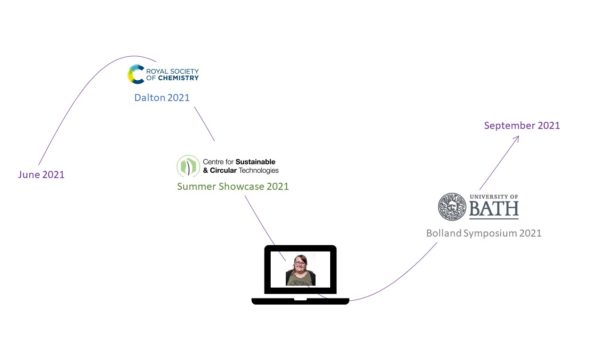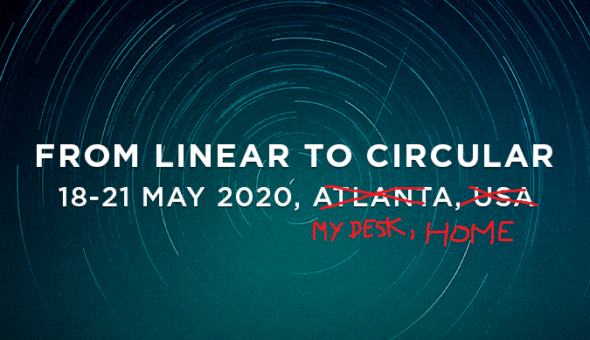In December 2013, CSCT students Jemma Rowlandson and Leighton Holyfield (cohort 5) and Jess Sharpe (cohort 2) attended the Hydrogen and Fuel Cell (H2FC) SUPERGEN Researcher Conference. This report comes from Jemma.
The H2FC SUPERGEN Hydrogen Researcher Conference took place from 16th-18th December at the University of Birmingham. The Bath Hydrogen Team was in attendance, including Dr Tim Mays and his group: DTC students Leighton Holyfield and Jess Sharpe (both co-supervised by Dr Andy Burrows), post-doc Nuno Bimbo and PhD student Antonio Noguera Díaz. The other half of Team Hydrogen comprised of Dr Valeska Ting, her PhD student Andrew Physick and myself: DTC first year Jemma Rowlandson (co-supervised by Professor Steve Parker). The H2FC SUPERGEN conference is primarily aimed at providing PhD students and early career researchers an opportunity to present their work. The talks and poster sessions covered all aspects of hydrogen research from solid oxide and PEM fuels cells to hydrogen separation, storage and production.

The conference kicked off with an excellent introduction by Professor Nigel Brandon of Imperial College London, who gave an overview of the use of hydrogen and fuel cells in low carbon energy systems. Other keynote speakers included several industrial experts including a memorable talk by Ceres Power. Ceres developed a unique solid oxide fuel cell designed to operate at far lower temperatures of 500-600°C, with an ingenious steel cell design which reduced costs and made for a relatively straightforward fuel cell stack manufacturing process.
Unusually, but importantly, the conference included an interactive panel discussion of early career researchers, including Bath’s very own Prize Fellow in Smart Nanomaterials Valeska Ting. The panellists shared their career journey so far, gave recommendations and answered any questions from PhDs and post-doctoral researchers interested in an academic career.
A special mention should go to DTC fourth-year student Jess Sharpe, who gave an exceptional presentation on ‘Modelling hydrogen storage in nanoporous materials for use in aviation’. Considering not everyone is comfortable with computational chemistry she managed to captivate the audience and presented her research in a clear and succinct way. The final presentation from Dr Kerry-Ann Adamson of Navigant Research certainly made for a memorable end to the conference. The presentation focused on bringing the hydrogen industry forwards away from predictions of a hydrogen economy in ten years time, because consumers are ready to invest in hydrogen technology right now.
Respond


